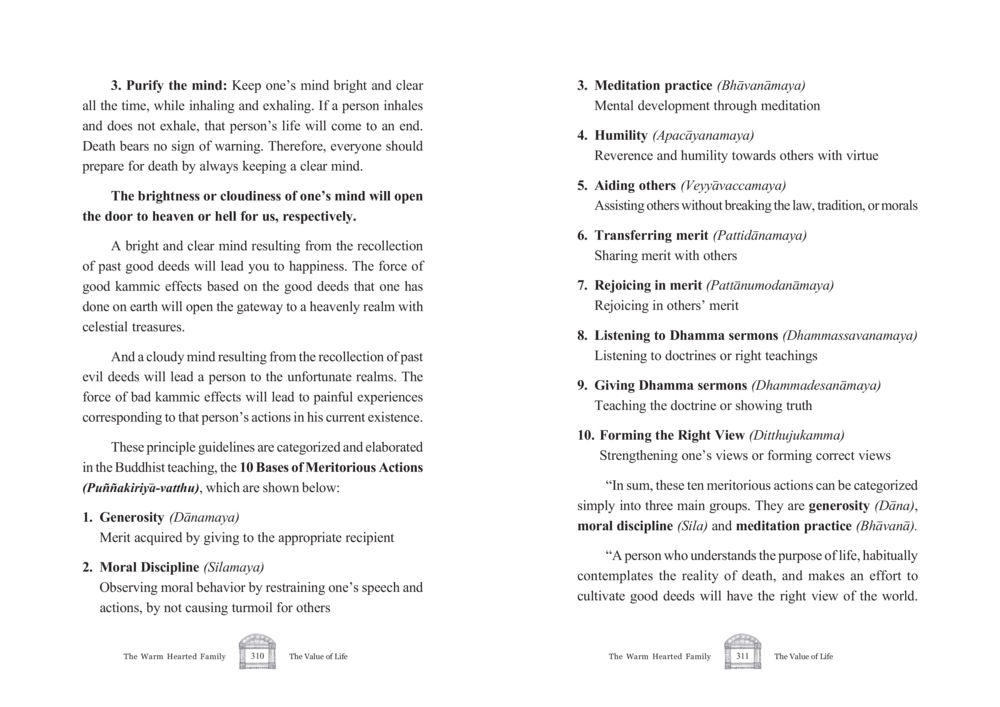Purifying the Mind for a Better Life : หน้า 156/207
The Warm Hearted Family : หน้า 156/207 Explore the importance of a clear mind and good deeds in Buddhist teachings for achieving happiness and avoiding negative realms.
0 ครั้ง

สรุปเนื้อหา
This text discusses the significance of maintaining a clear and bright mind through inhalation and exhalation as key to life and decision-making. It emphasizes preparing for death by reflecting on past good deeds which lead to happiness and heavenly realms. Furthermore, it outlines the 10 Bases of Meritorious Actions in Buddhism, which guide individuals towards positive actions and thoughts. These principles encompass various forms of good behavior including generosity, moral discipline, meditation, and humility, all essential for fostering a right view of life and encouraging the cultivation of good deeds. Ultimately, by understanding the reality of life and death, one can achieve a deeper wisdom and enhance their spiritual journey. Learn more at dmc.tv.
หัวข้อประเด็น
-Importance of a clear mind
-Buddhist teachings on life and death
-10 Bases of Meritorious Actions
-Generosity in Buddhism
-Meditation and mental clarity
-Kammic effects and moral discipline
ข้อความต้นฉบับในหน้า
หน้าหนังสือทั้งหมด















































































































































































































